| |
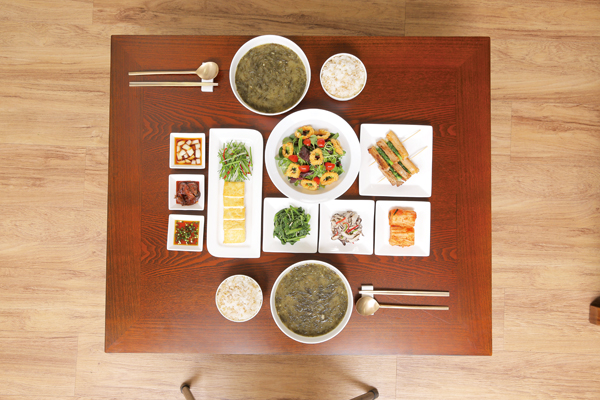 |
|
▲ Jeju has a selection of heart-warming dishes perfect for winter. Photos courtesy
JNU Industry Academic Cooperation Foundation and Jeju Special Self-Governing Province |
Jeju’s cuisine at this time of year is full of warm broths and porridges that taste best when hunkered down around a blazing electric heater (if you can’t find a traditional wood-burning stove).
To help us choose the island’s best we consulted ‘Top 20 Jeju Local Dishes for Your Life and Health’ published by Jeju National University’s Department of Food Science & Nutrition.
The book contains many of Jeju’s favorite dishes and was written by Insook Chae, Yangsook Ko, Hyosun Kim and Yunkyoung Lee from.
The English version, translated by Jenie Hahn of the JNU Center for International Affairs, accompanies Chinese and Japanese editions.
All of the “earthy and rich” foods introduced are created from the “crystal clear waters and refreshing air” of Jeju. And the writers invite us all to “delve in and be mesmerized by the sheer array of distinctive tastes.”
Here is a short taster of what is inside with the best winter warmers.
| |
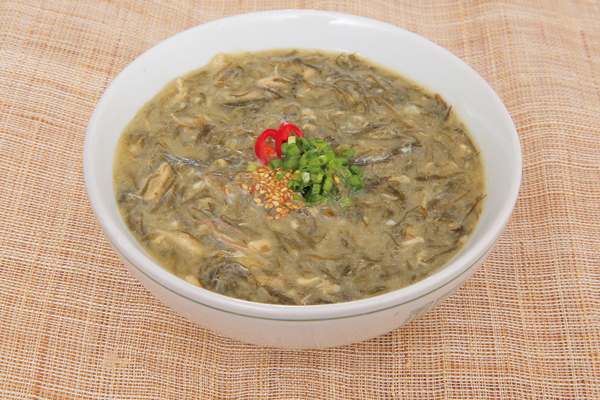 |
|
▲ Momguk / gulfweed soup. Photos courtesy
JNU Industry Academic Cooperation Foundation and Jeju Special Self-Governing Province |
Momguk / gulfweed soup
Main ingredients: gulfweed, pork
Momguk was a soup that was brewed when a whole pig was butchered for an important family event. Whether the event was a sad or a happy one, it consoled one's emotions or fostered the festivities as a party food. The soup base was made from the boiled pig while pork, gulfweed, cabbages, radish and radish leaves were added to the broth and boiled some more. It was a savory homemade soup that was served to the guests and neighbors who came to help out. The standard term for gulfweed in Korean is mojaban but in native Jeju language, it is called “mom” (pronounced 'mohm').
| |
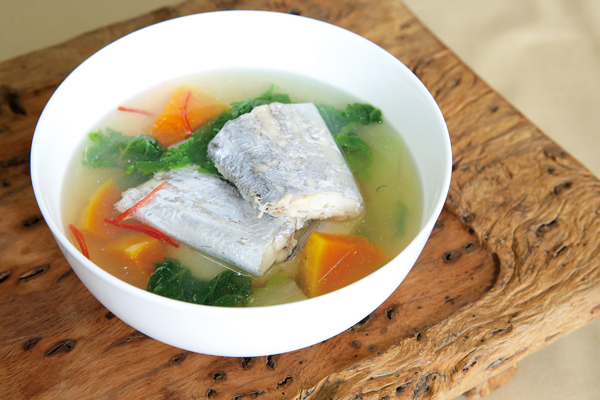 |
|
▲ Galchiguk / cutlassfish soup. Photos courtesy
JNU Industry Academic Cooperation Foundation and Jeju Special Self-Governing Province |
Galchiguk / cutlassfish soup
Main ingredients: cutlassfish, squash, winter cabbage
There is a saying in Jeju that the “cutlassfish and squash caught and harvested in the fall tastes the best.” The cutlassfish that is caught in Jeju are shiny silver in color and is usually boiled and simmered together with squash. The perfection of the taste in this kind of fish soup lies foremost in the freshness of the ingredients and should be served hot for that sublime perfection in taste.
| |
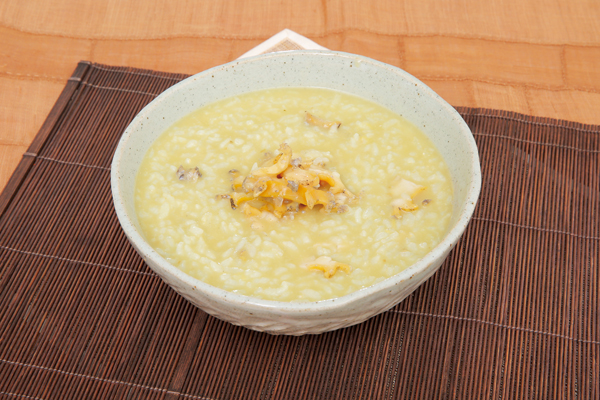 |
|
▲ Jeonbokjuk / abalone soup. Photos courtesy
JNU Industry Academic Cooperation Foundation and Jeju Special Self-Governing Province |
Jeonbokjuk / abalone soup
Main ingredients: abalone, rice
Abalones reigned supreme as the top tribute among all other products that were submitted to the royal court. The abalones were made into different dishes such as hoe (raw slices), grilled abalone, abalone porridge, and fermented abalone. Abalone porridge was especially unique as it was cooked with the entrails which leads to the porridge taking on a green hue.
| |
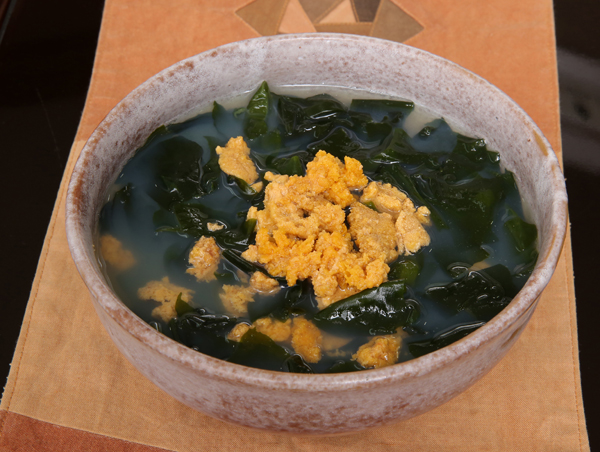 |
|
▲ Seonggaeguk / sea urchin soup. Photos courtesy
JNU Industry Academic Cooperation Foundation and Jeju Special Self-Governing Province |
Seonggaeguk / sea urchin soup
Main ingredients: sea urchin roe, seaweed
People used to say that Jeju's warm-hearted hospitality can be seen in the abundance of the seonggaeguk (sea urchin) even though the amount of sea urchin roe that can be obtained is minimal. Like caviar, it was a delicacy that could only be served at special banquets or feasts. The brighter the reddish-yellow color, the sweeter it tastes. The sea urchin soup tastes even richer with the blending of the yellow soup and the savory seaweed that has been simmered together. |
























